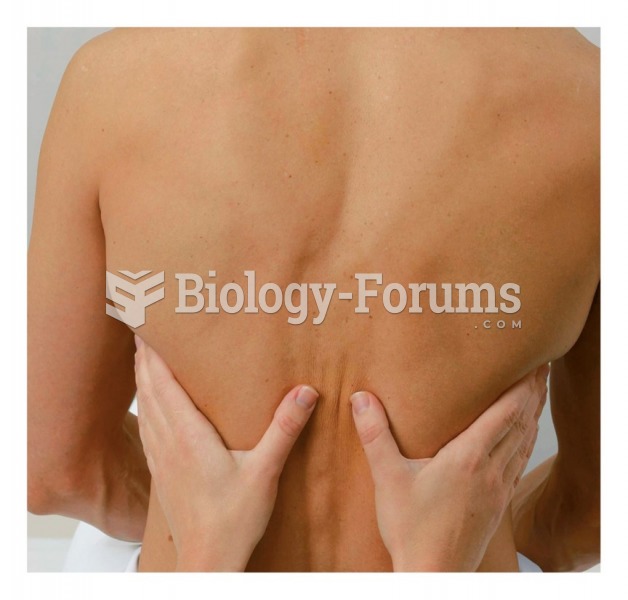|
|
|
Approximately 500,000 babies are born each year in the United States to teenage mothers.
Russia has the highest death rate from cardiovascular disease followed by the Ukraine, Romania, Hungary, and Poland.
Urine turns bright yellow if larger than normal amounts of certain substances are consumed; one of these substances is asparagus.
IgA antibodies protect body surfaces exposed to outside foreign substances. IgG antibodies are found in all body fluids. IgM antibodies are the first type of antibody made in response to an infection. IgE antibody levels are often high in people with allergies. IgD antibodies are found in tissues lining the abdomen and chest.
Cancer has been around as long as humankind, but only in the second half of the twentieth century did the number of cancer cases explode.







